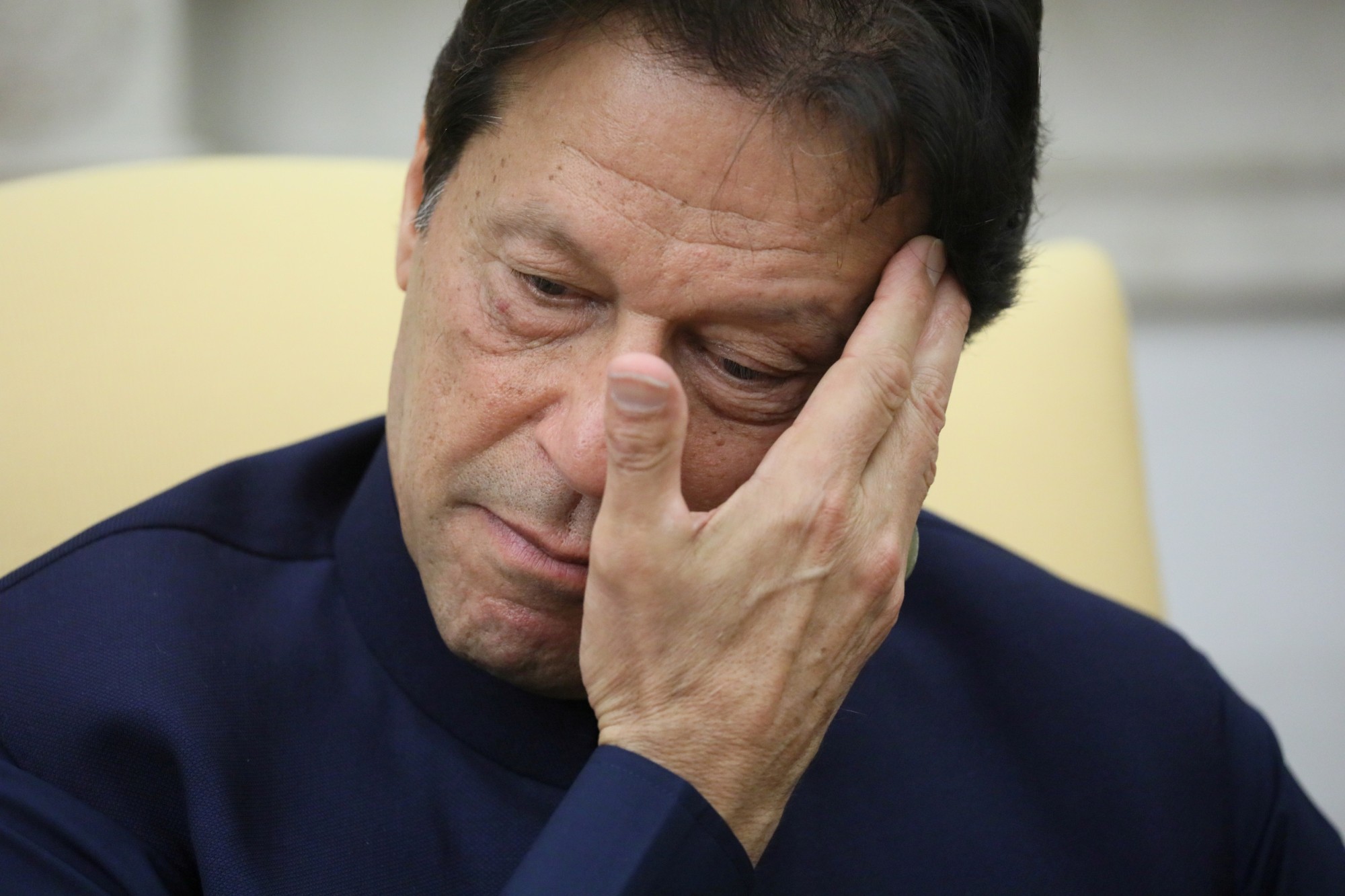
Imran Khan and his cult-like following may claim that Khan is bringing about a revolution in which the establishment will be put in its place and Pakistan will once again be a democracy for the average Pakistani, that the elites will be taught a lesson, and that the army will be under civilian supremacy.
However, that is patently false.
Imran Khan’s party, the PTI, represents some of the most privileged elites of Pakistan. PTI is the party of Ijaz ul Haq (former military dictator General Zia ul Haq’s son) and Omar Ayub (former military dictator General Ayub Khan’s grandson). Almost all of Imran Khan’s cabinet was comprised of those who have always supported the military establishment over the decades.
The PTI is not a rights-based movement, nor does it have any ideology aside from “Imran Khan is the solution” – which is more akin to the Egyptian Muslim Brotherhood’s slogan ‘Islam is the solution’!!!
In a recent column, Ayesha Ijaz Khan writes, “Although they are recently alluding to democracy, human rights and the Constitution, these are mere after-thoughts from a party that never cared for them while in office. PTI vloggers who have escaped the country wonder why western governments didn’t condemn Imran Khan’s arrest as undemocratic. Perhaps because they aren’t as unaware as you would like to believe. They know how Imran Khan came to power. His 22-year struggle narrative may have impressed some in Pakistan, but back in 2018, when he became Prime Minister, a Washington Post headline read “Pakistan’s military has its fingerprints all over the elections.”
When the army who had brought Imran to power in 2018 turned against him, Imran Khan turned against the army. “When he turns on someone though, Imran Khan doesn’t hold back, hence references to “Mir Jaffer and Mir Sadiq” were routinely made. Then he dubbed General Faisal Naseer as “Dirty Harry.” After his arrest and hasty release, he accused the Chief, General Asim Munir, for his “abduction” and did not hesitate to say this to foreign journalists. Had any other ex-prime minister of Pakistan said all this, they would have been put away in Adiala Jail long ago, but Mr. Khan enjoys the support of key members of the judiciary, who have abandoned even the veneer of impartiality, in granting him blanket relief in the corruption charges against him.”
In conclusion, Ayesha Ijaz Khan warns “When you play with fire, you can’t expect the other side to be nice and docile, particularly when the other side is the Pakistan Army, accustomed to sorting out civilians. But this should also be a lesson for the army. The politician they supported the most, made the most allowances for, has come back to haunt them the worst. The Army too must learn from history. Every time they have meddled in the political process by creating or dividing existing political parties, it hasn’t ended well for them or for the country.”
![]()





